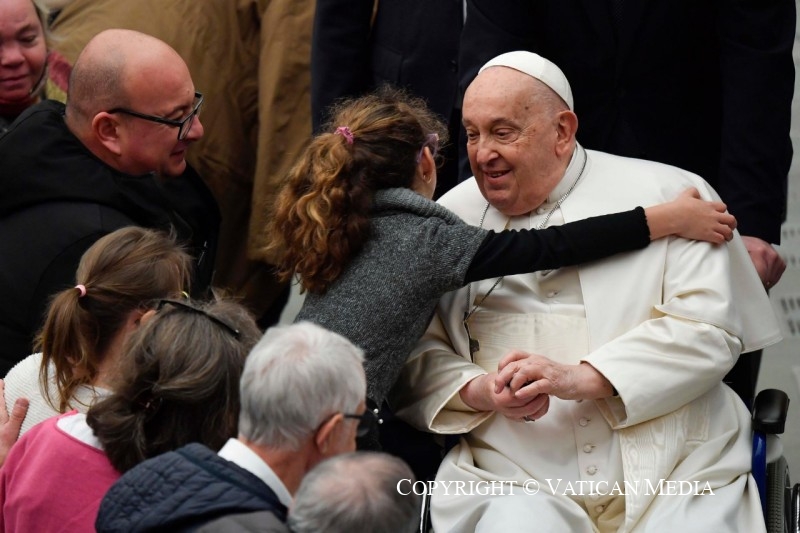Pope prays for Afghanistan, urges the international community to provide aid
Francis pleads for peace again during this Wednesday general audience. Calling for a “definitive peace”, he slammed war, which “is always a defeat. Always.” He also mentioned "tormented Ukraine", Palestine, Israel, Myanmar, and “all peoples who suffer war". Charity is the focus of his weekly catechesis, “for those who are not lovable, [. . .] even for one’s enemy.”
Vatican City (AsiaNews) – Pope Francis tirelessly appealed again for peace in this morning’s general audience in St Peter's Square.
In a world torn by many conflicts, "All together, with a big heart, let us pray for definitive peace,” he said in his greetings to Italian-speaking pilgrims. “Let us pray for peace. Let us not forget battered Ukraine, let us not forget Palestine, Israel, Myanmar”, and a second time, "Let us pray for all peoples who suffer war".
The pope’s words sparked a loud round of applause from the faithful gathered for the occasion.
"No wars, none, because war is always a defeat. Always," he added, reiterating what he has said repeatedly on other occasions.
The pontiff also spoke about the people of Afghanistan, affected by tragic floods recently, especially in the country’s central and eastern areas, amid havoc and destroyed homes.
According to the latest reports, at least 300 people have died so far, including 51 children.
"I pray for the victims, especially the children, and their families, and I appeal to the international community to immediately provide the necessary aid and support to protect the most vulnerable," Francis said.
Continuing the series of catechesis on vices and virtues in his Wednesday audiences, the Holy Father turned his thoughts to the theological virtue of charity, after talking about faith and hope.
Francis noted that Saint Paul's hymn to charity in the First Letter to the Corinthians (1 Cor 13:4-7) was addressed “to a community that is anything but perfect in fraternal love: the Christians of Corinth were rather litigious,” torn by “internal divisions”.
Saint Paul had harsh words for them, criticising the way they conducted the "Eucharistic celebration”. Francis lamented that “even there, there are divisions, and there are those who take advantage of this to eat and drink, excluding those who have nothing.”
This ought to be food for thought of the meaning of love, often extolled, but almost never fulfilled in actions, even in our times.
“In our days too, love is on the lips of many ‘influencers’ and in the refrains of many songs. We speak a lot about love, but what is love?” the pope asked.
The love Saint Paul mentioned is not the one “that rises, but the one that descends; not the one that takes, but the one that gives; not the one that appears, but the one that is hidden.”
It is the love that comes from God, the hardest to know and put into practice. It is what early Christians called agape.
Like other people, “Christians are capable of all the forms of love in the world,” but the one coming from God is the greatest.
It “drives us where humanly we would not go: it is the love for the poor, for those who are not lovable, for those who do not care for us and are not grateful. It is love for what no-one would love, even for one’s enemy. Even for the enemy,” Pope Francis stressed.
It is precisely in the "Sermon on the Mount" (Mt 5:1-7:29) that such love "assumes the name of charity", a form of love that goes beyond the criteria of human nature.
“It is a love so ardent that it seems almost impossible, and yet it is the only thing that will remain of us,” the Pontiff noted.
It is "theological" love for it comes from God, stands as the "narrow gate" to enter the Heavenly Kingdom, “Because at the twilight of life, we will not be judged on generic love” but “precisely on charity”.







.png)










